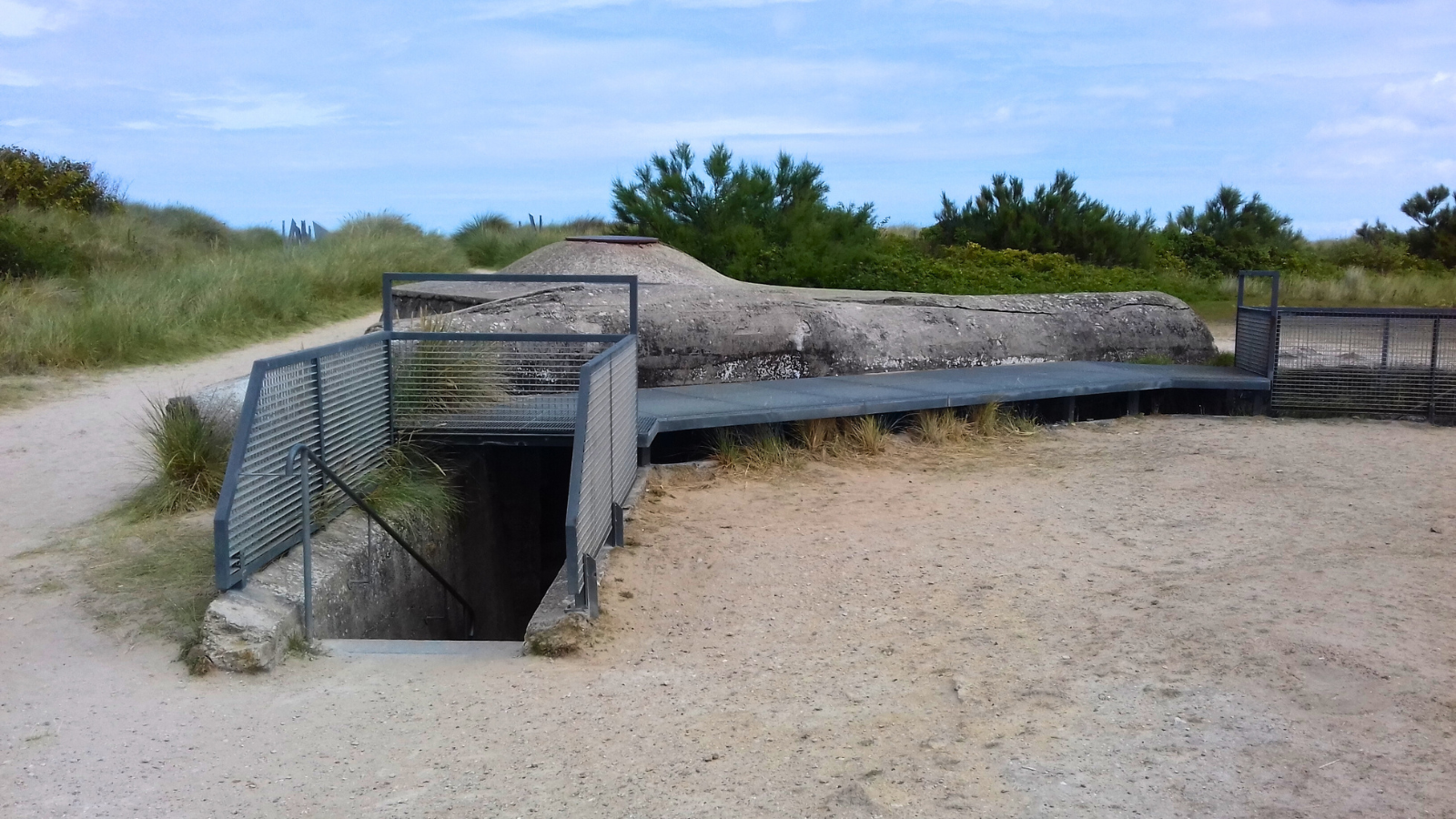 How D-Day’s Valour and Strategy Inspire Modern Enterprise
How D-Day’s Valour and Strategy Inspire Modern Enterprise
From Winnipeg to Normandy: Reflections with Purpose
This past spring, I stayed in Coursuelles-Sur-Mer on Juno Beach in Normandy, France, and spent a week of contemplation and sober thought, but also of immense pride. This is because, being from Winnipeg, the number of times I saw reminders of the contributions of the Royal Winnipeg Rifles (RWR) and Fort Garry Horse to the D-Day landings was simply awe-inspiring. The end result of the effort was that, despite incurring the highest casualties by percentage of landing force, the Canadians advanced further inland and achieved more of their objectives than the Americans or British on June 6th.
Although nothing really compares to the intensity and cost of war, there are valuable lessons to be learned for businesses from the D-Day invasion.
Why Juno Beach Still Matters, Especially to Business Leaders
On June 6, 1944, Canadian troops stormed Juno Beach as part of Operation Overlord, the Allied invasion of Normandy. Their mission was one of the boldest and most pivotal operations of World War II, demanding extraordinary courage, teamwork, adaptability, and strategic planning. While the historical legacy of Juno Beach is rightly centered on sacrifice and freedom, the event also offers profound lessons for business leaders navigating the uncertain terrain of modern enterprise. The principles that carried the Canadians through adversity—preparation, communication, adaptability, and unity—remain as relevant in boardrooms and startups as they were in Normandy.
Strategic Preparation and Planning
Before the first Canadian troops landed on the beach, meticulous planning underpinned the Juno Beach assault conducted primarily by Major General Rodney Keller, who also commanded the 3rd Canadian Infantry Division. Intelligence was gathered, rehearsals conducted, and contingencies considered. In the business world, success is most often the product of careful preparation. The Canadians’ approach underscores several key strategies:
- Thorough Analysis: Canadian and other Allied planners pored over maps, aerial reconnaissance, and enemy positions. Similarly, businesses must invest in market research, competitor analysis, and scenario planning to anticipate obstacles and opportunities.
- Clear Objectives: The mission’s goals were precise—secure the beachhead, push inland, and link up with adjacent forces. Clear, measurable goals give organizations focus, rally teams, and provide benchmarks for progress.
- Contingency Planning: The planners expected heavy resistance, rough seas, and unforeseen setbacks. In business, contingency plans and risk management processes are essential to respond effectively when things go awry.
Leadership Under Fire
The chaos of combat put extraordinary pressure on officers and non-commissioned leaders. Decisions had to be made instantly with incomplete information. Leadership at Juno Beach exemplifies several lessons for business:
- Decisiveness in Uncertainty: Delays or hesitation could have been fatal. Business leaders, too, must often make critical choices with imperfect data. The ability to decide firmly, then adapt as new information emerges, is vital.
- Leading from the Front: Canadian officers led by example, inspiring confidence and cohesion. In business, leaders who are visible, involved, and willing to share hardship earn credibility and motivate teams.
- Empowering Subordinates: The decentralized nature of the landing meant junior leaders had to act independently. Empowering employees to make decisions fosters agility and innovation.
Adaptability and Resilience
No battle plan survives first contact with the enemy. On Juno Beach, unexpected obstacles emerged: mines, machine gun nests, and flooded terrain. The Canadians adapted quickly, improvising solutions and pressing forward. This adaptability offers enduring business wisdom:
- Embrace Change: Market conditions, technology, and consumer preferences shift rapidly. Organizations that adapt—like the Canadians adjusting to battlefield surprises—outlast those that rigidly cling to old plans.
- Resilience in Adversity: The landings were costly, and progress was hard-won, yet the Canadians persisted. Business setbacks are inevitable; resilience—the determination to push forward, regroup, and learn—is a hallmark of successful enterprises.
- Rapid Problem-Solving: Small teams overcame obstacles with creative tactics. Encouraging a culture where employees feel free to propose and test new solutions quickly is a key ingredient for success.
Teamwork and Collaboration
Juno Beach was not conquered by lone heroes but by integrated teams —infantry, engineers, medics, and armour—working in concert. Such a team was led by Bill “Cosy” Aitken” of the RWR whose assault team, despite withering artillery and machine-gun fire, captured a particularly dangerous pillbox that fired westward down the beach. For organizations, the value of interdisciplinary collaboration is clear:
- Cross-Functional Teams: Success required the seamless cooperation of different units, each bringing unique expertise. Businesses excel when marketing, operations, finance, and R&D work together and break down silos.
- Communication: Effective coordination under fire depended on clear, concise communication. In enterprise, open channels, feedback loops, and information sharing accelerate progress and reduce errors.
- Trust and Mutual Support: The Canadian force relied on mutual trust and an unwavering commitment to shared goals. Fostering a culture where colleagues support one another, share credit, and pull together in crisis leads to success.
Innovation Under Pressure
Necessity often drives rapid adaption. The Canadian forces at Juno Beach employed novel tactics and equipment, such as amphibious tanks and specialized engineering vehicles, to overcome defenses:
- Encourage Experimentation: When the traditional approach is blocked, new methods must be tried. Organizations that support calculated risk-taking and rapid prototyping innovate faster.
- Leverage Technology: The Allies’ technical innovations provided a critical edge. Staying abreast of technological advances and integrating them into business processes distinguishes industry leaders from followers.
- Learning from Failure: Not every major risk taken succeeded, as the very costly disaster at Dieppe in 1942 proved. The key is to learn, iterate, and improve—a cycle crucial to both military and business success.
Morale and Purpose
Motivation was as important as firepower. The Canadian troops knew their cause, believed in their mission, and drew strength from camaraderie:
- Shared Vision: A sense of purpose binds teams through hardship. Leaders who communicate a compelling vision inspire commitment and perseverance.
- Recognition and Support: Celebrating achievements and supporting team members—especially in adversity—sustains morale and loyalty.
- Well-being: Mental and emotional resilience matter. Investing in employee well-being creates more sustainable, effective organizations.
Execution and Follow-Through
The landing at Juno Beach was just the beginning. The Canadians had to consolidate gains, push inland, and adapt to ongoing threats. For businesses:
- Operational Excellence: Success comes from disciplined execution, not just good ideas. The keys are to define processes, measure results, and refine continuously.
- Persistence: Seizing opportunities is not enough—organizations must maintain momentum and follow through until objectives are secured.
- Accountability: Every team and individual must understand their role and be responsible for outcomes. Accountability drives focus and results.
Inclusivity and Diversity
The Juno Beach forces reflected Canada’s varied backgrounds—Francophones and Anglophones, Indigenous soldiers, immigrants—united in a common cause. Diversity strengthened the force:
- Harnessing Different Perspectives: Diverse teams bring broader experience and more creative solutions. Inclusion leads to better decisions and greater adaptability.
- Unity in Diversity: Embracing differences while focusing on shared goals propels organizations forward, especially during turbulent times.
Legacy: Building for the Future
The legacy of Juno Beach is not only victory but the foundation for peace and reconstruction. Businesses, too, must look beyond immediate gains:
- Sustainable Impact: Consider long-term consequences—for employees, communities, and the environment. Responsible leadership leaves a lasting legacy.
- Knowledge Transfer: The lessons of Juno Beach continue to be studied. The encouragement of mentorship, documentation, and education to preserve and propagate institutional wisdom are important steps.
- Adaptation for Future Challenges: The world changes; so must organizations; they should learn from history but be prepared to chart new courses as circumstances evolve.
Timeless Strategy from a Defining Moment
The Canadian landing at Juno Beach stands as a powerful story of strategic vision, courage, and unity under fire. For today’s business leaders, its lessons are both timeless and timely: Prepare meticulously, empower teams, adapt relentlessly, and work together toward a shared purpose. In doing so, organizations can not only weather the storms of competition and change, but build legacies worthy of remembrance.
Paul Kochan
Senior Advisor


